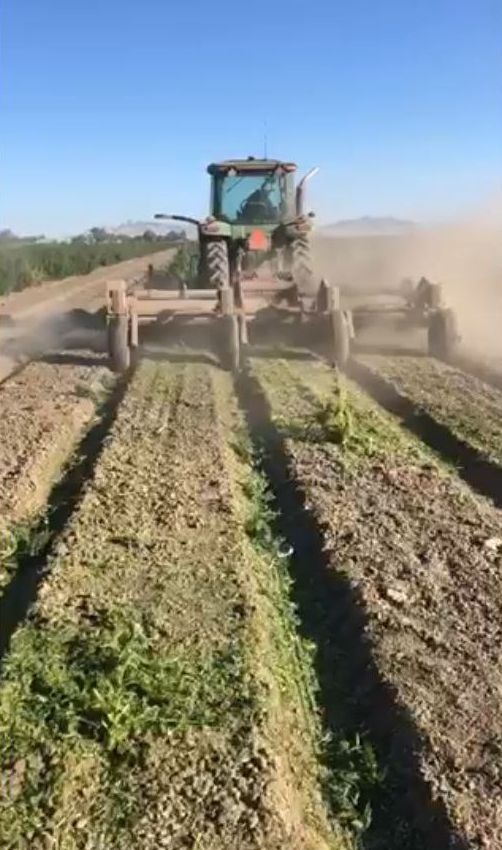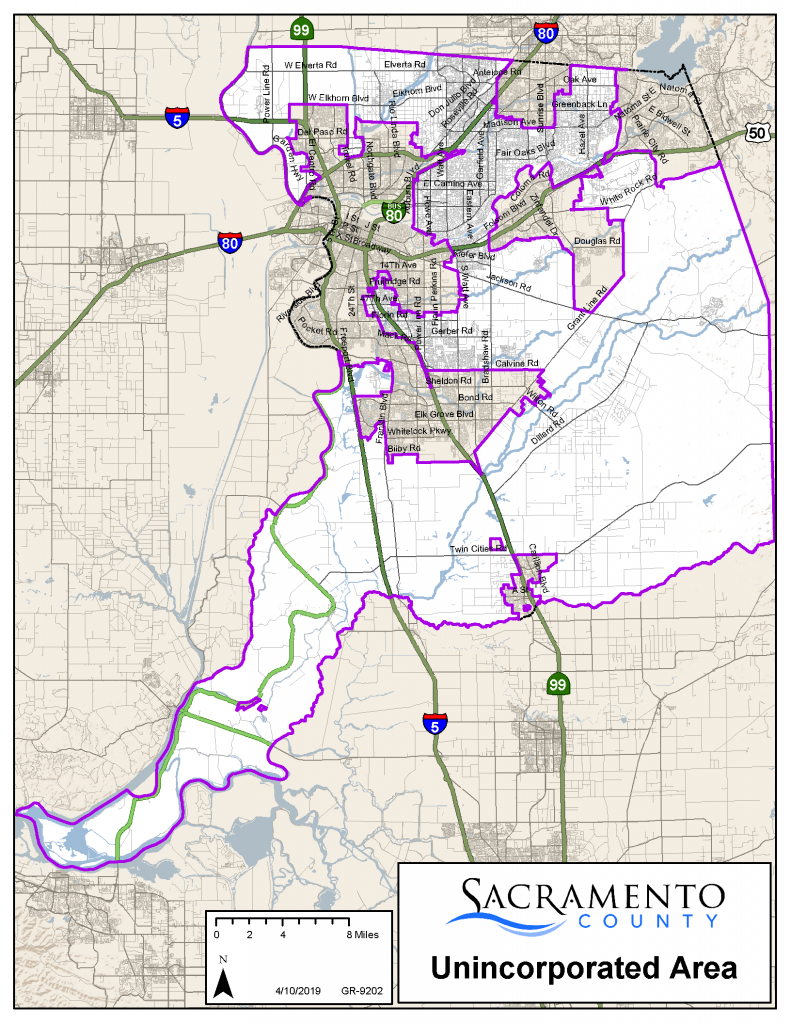
Destruction of an industrial hemp crop in Sutter County which tested too high when THC levels were checked. / Photo courtesy Sacramento County Agricultural Commissioner’s office
BY BRANDY TUZON BOYD
THE NATOMAS BUZZ | @natomasbuzz
Rice fields just north of Elkhorn Boulevard in the Natomas Basin could be used to grow industrial hemp crops once Sacramento County code is updated to align with state and federal laws.
Officials last week shared proposed changes with the Natomas Community Planning Advisory Council (CPAC) that would replace the county’s current no-grow ordinance.
“Right now, in the unincorporated county, cultivation for either commercial purposes or research purposes of industrial hemp, is prohibited,” explained Wendy Hartman, a principal planner for Sacramento County office of planning and environmental review.
But that will change if the Board of Supervisors OKs amendments to county and zoning code. The changes would allow growing industrial hemp including seed production, nursery uses, and processing on agricultural land or indoors in specific industrial zones of unincorporated Sacramento County.
Hartman said county staff will present to several CPACs in areas most likely to be impacted by outdoor grows of industrial hemp. The primary purpose of a CPAC is to gather community feedback on projects of local interest and policies that apply countywide.
The Natomas CPAC was the first stop on the circuit to share information and to get public input about the proposed changes to Sacramento County’s industrial hemp growing rules. There is a lot of land within the Natomas Basin which would meet the guidelines to grow industrial hemp, Hartman said.
“The current rice fields north of Elkhorn or the west side of the highway (for example),” she said. “There are alot of other properties that are large enough.”
Hartman said the county will present next week at the Rio Linda/Elverta CPAC and Cosumnes CPAC meetings scheduled for Thursday, Feb. 26. There will also be a presentation to the Southeast Area CPAC on Feb. 27.
The Rio Linda/Elverta CPAC will meeting at 7 p.m. on Thursday, Feb. 26 at the Rio Linda Depot Visitors’ Center, 6730 Front Street, in Rio Linda.
Industrial hemp is defined by the state as an agricultural product that is limited to the types of plant Cannbis stava L. and any part of that plant, including seeds of the plant and all derivatives, extracts, the resin extracted from any part of the plant, cannabinoids, isomers, acids, salts, and salts of isomers, with a THC concentration of no more than .3%.
Industrial hemp has many uses the most lucrative of which is for CBD extraction. CBD is used to treat a variety of ailments.
“It looks very similar to cannabis,” Harman said.
Industrial hemp has no benefits if smoked.
The federal 2018 Farm Bill allows for industrial hemp to be grown by citizens seeking to enter the industrial hemp industry. The Farm Bill also directs states to create their own regulatory programs for growing industrial hemp.
As of Jan. 14, 2020 neighboring Yolo. Placer, Amador and Solano counties currently prohibit growing industrial hemp, but Sutter, El Dorado and San Joaquin counties allow it.
While California’s law has not been finalized, Sacramento County is moving ahead with changes that would end the moratorium to growing industrial hemp.
As proposed, industrial hemp crops — considered an agricultural commodity — would be required to be licensed, registered and inspected by the Sacramento County Agricultural Commissioner’s office. Growers would also need to sign a compliance agreement and provide a bond for crop destruction/abatement purposes.
The THC level of a crop will be tested 30 days prior to harvest, said Parminder Malhi of the Sacramento County Agriculture/Weights and Measures Dept. If the crop’s THC level measures above 0.3%, it will be destroyed.
The proposed county code and zoning changes also require buffers, signage and security measures.
For example, a 20-acre minimum would be required when growing in an agricultural zone, Hartman said. There would also be a setback from any incorporated city boundaries as well as minimum separation distances between industrial hemp fields and residences, churches, schools and daycare centers, she said.
Comments made at CPAC meetings or submitted to the county will be taken into consideration, Hartman added, as will feedback from internal meetings with code enforcement and the Sacramento County Sheriff’s Dept.
The proposed changes will be reviewed by the Sacramento County Planning Commission which will make its recommendations. The county Board of Supervisors is expected to take action on the proposed code and zoning changes in July.
To date, Hartman said county staff has not received any direction to look at changing Sacramento County rules regarding the distribution of cannabis or marijuana dispensaries.
For more information about Sacramento County code and zoning changes related to industrial hemp click here.



Speak Your Mind
You must be logged in to post a comment.